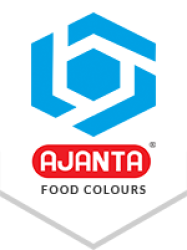_1756117051.jpg)
Synthetic food colours play a vital role in the field of food, beverage, pharmaceutical, and cosmetic manufacturing industries, where they make the products appealing and attractive for customers. They not only enhance the visual appeal of products but also maintain their consistency from batch to batch. However, one of the biggest challenges with food colours that manufacturers often face is to maintain their stability and quality during production, storage and distribution. Improper storage practices and climate changes directly impact the appearance of colour which leads to both operational as well as financial losses.
The Role of Climate in Food Colour Stability
Climate plays a significant role and determines the performance of synthetic food colours on different products. Manufacturers often face several challenges due to:
1. Temperature Fluctuations
In high temperatures colours can fade, lose their brightness, and even degrade on products over time. For example, colours can lose their appearance on confectionery and beverages in hot climates which makes the product ugly. Manufacturers should store their products in controlled climates and also transport them under controlled conditions.
2. Humidity and Moisture
Humidity is another critical factor because excessive moisture can cause powdered colours to clump together which leads to difficulties during the manufacturing process. In the liquid based applications where we use the liquid form of colours in this moisture makes the colour uneven as well as separates the colours on products which affects the final appearance of the products.
3. Sunlight and UV Exposure
When the colour directly contact with sunlight or UV rays, this may accelerate the process of colour breakdown which can lead to colour fading or even discolouring of the colour on products. This often happens with the products that use transparent or light packaging, like drinks, candies and some food products. These faded products may cause dissatisfaction among customers which can damage the brand reputation as well as sales.
Storage Challenges Manufacturers Face
Even if the manufacturers manage the climate conditions, the storage practices can determine whether the synthetic food colours maintain their quality and stability until the end of their shelf life or not. Some common issues include:
1. Poor Packaging Practices
If the manufacturers do not store their products in airtight, moisture-proof containers, they can easily absorb humidity from their surrounding environments. Weak packagings also allow air and light to enter products which accelerates the process of degradation.
2. Inconsistent Storage Environments
Uniform storage conditions are a real challenge for many manufacturers. In particular, it is difficult to provide uniform storage in climates with significant seasonal variations, such as cold to hot or dry to humid. This results in pressure on products and leads to changes in texture, shade and stability.
3. Limited Awareness of Best Practices
Sometimes the problem is not just happens with external conditions but also happens due to limited awareness among the manufacturers about the ideal storage practices. Manufacturers only have to simply measure a few things like keeping colours in cool, dry, and dark spaces. These things are often overlooked by manufacturers in busy production environments but they can make significant differences.
The Business Impact of Climate and Storage Issues
Producers who face this problem very well understand that this is not only a technical issue, but also directly affects the profitability and reputation of their products. The faded and inconsistent shades that result from storage pressure lead to customer complaints or reduced product sales. Additionally, any minor difference in the colour variation can lead to the entire batch being lost which increases the cost of the production.
How High-Quality Synthetic Food Colours Solve the Problem
There is good news for manufacturers, they can overcome their many colour-related challenges, including climate and storage, by only using high-quality synthetic food colour in their products. These colours are especially prepared to maintain the colour appearance in different climates and storage conditions. These colours offer:
- Enhanced Stability against heat, light, and humidity
- Consistent Colour Performance across different applications
- Longer Shelf Life when stored under recommended conditions
- Ease of Use in both dry and liquid forms without clumping or fading
Final Thought
By choosing high-quality synthetic food colour for their products, manufacturers not only protect their products from climate and storage challenges but also ensure the product’s stability, consistency, and most importantly visual appeal of the products that attracts the attention of customers and boosts the product sales and brand recognition in the market.
If you are a manufacturer of food, cosmetics, pharmaceuticals, confectionery, or pet food products, and are facing challenges like colour degradation or fading in different climates and storage conditions so Ajanta Food Colours can be the best option for your business success. Ajanta Food Colours is a leading synthetic food colour manufacturer in India with over 75 years of legacy. The company offers a wide range of high-quality synthetic food colour and fulfills the colour demands of its clients worldwide by exporting them around the world.
Ajanta Food Colours uses the latest machinery and technologies in all their manufacturing plants which helps them to provide premium quality colour that does not fade or change on products over time and under various conditions like different climates and storage. For maintaining the quality and safety of colourants, Ajanta also received various awards and certificates from India and from other countries where Ajanta exports its high-quality, FDA-approved food colours.
To know more about Ajanta Food Colours or its offerings, and let you know more about how you can maintain your product’s appeal in different climates and storage conditions, please contact us today!




